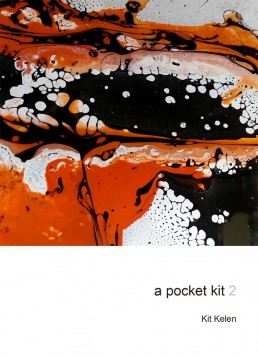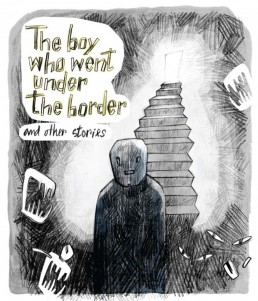Kit Kelen produces literary and critical work in a range of genres. Best known as a poet, he also writes fiction for adults and young adults and children and publishes scholarly research in literary/cultural studies.
Kit Kelen’s poetry has been published and broadcast widely since the seventies, and he has won a number of prestigious awards over the years, including an ABA/ABC Bicentennial Prize in 1988; and in 1992 an Anne Elder award for his first volume of poems The Naming of the Harbour and the Trees. He has also won Westerly‘s Patricia Hackett Prize and placed second in Island’s Gwen Harwood Prize. In 2012, his poem ‘Time with the Sky’ was runner up in the Newcastle Poetry Prize, an award for which he has been frequently shortlisted. In 2017, Kit was shortlisted twice for the Montreal Poetry Prize and, for the second time, won the Local Award in the Newcastle Poetry Prize.
Volumes of Kit Kelen’s poetry have been published in Chinese, Portuguese, French, Italian, Spanish, Swedish, Indonesian and Filipino. The most recent of Kelen’s dozen English language poetry books are China Years – New and Selected Poems (2012, ASM/Flying Islands) and Scavenger’s Season (2014, Puncher and Wattmann). He also has a ‘mini-selected’ poems in the form of A Pocket Kit. His next collection of poetry, Poor Man’s Coat – Hardanger Poems is being published by University of Western Australia Press in 2018.
a field guide to Australian clouds prolegomenon
Prolegomenon for a field guide to Australian clouds was the winner of the Local Prize in the 2017 Newcastle Poetry Prize
1
these are strange faces for a heaven blow-ins
you see a fleet first, coasts dissolve the new place shaping up
you have to keep an eye on it or it’s always already there
the pages have to have been dreamt weren’t we?
aren’t they islands downside up? ladder kicked out
gone if you blink parliament quorate when inchoate
a new sun every day they’re coming
merino, sky-sill crew dark and bright, the sorters’ bin
I see them from the window seat – weigh parts of the fleece
the moment’s silence skin in which – I must be the welcoming party
it falls to me to speak
hello clouds then – this is country
I think of the ones who were before
2
here’s a present of fine writing
mallard, storks, sing in, from, to – mist tips them
in a chariot of this, the ancients (over the elixir limit,
sentenced to more of immortality) – they must have overseen
an edge to us – blue halo and then peering in
regolith, pedolith – mobile mud mantle – grey day of menacing tide
they have been inscribed, harp held on stately seat
Horus in among, falcon-headed were gods so Cirrus-thin?
they fight with pillows there’s nothing to rule in or else
tilt and lay you down to rest – you’ll get another game
isles prise apart, an England goes
whether or not you watch, other worlds are
shadows chase sunshine over the water
see here the Bountiful, and Roar of Lion, Messengers of Rain
Parjanya drives the clouds before him there’s Rüppell’s vulture
and the common crane – vagrants of the troposphere
they visit us as well our friar’s lantern’s wisp with a will nose cut off
to spite smoke stands from the rye
from a large family of haloes – this sundog set among the crystal
misty, thus portending
3
I came in a boat you came on a boat it’s a long way back
Wanjina was here – by this time painted so many times
(a little sky on the ceiling makes rain)
what washes up we’ll hang to dry
(the brush off as with Dampier’s flies cover the sun’s face)
from a pavilion in Peach Blossom Land seas south as ours
spot a bank of them gilded and we look up yearn for lotus, dancing flame
the great bird comes to bear crews off it must be the River of Ocean
Purgatory Mountain’s the counterweight for all that holy land
I came in a boat and you came too whole year’s cheque, a sheep’s back
yeeha our boat has come in
dig! dig in till you’re just about in China – it’s only a matter of time
fray shape, keep to the line breaks up go dead still then take the air
no other world requires it – nor speech, perception, pain
meaning’s the universe mammoth – will speak till it’s extinct
still, hear the song as if a voice under all that was said
sky-writing in a trail of vapour mortar’s bones of the free
bob in the mirror read what you like when it comes glass
heaven’s there backwards too
that’s how darkness passes
4
there’s the awkward thing you tuck away or try to sweep whole carpet under
you swim from it but it’s the sea
as funnel blue blown wander lonely meet my fate somewhere
in caverns of rain and sphere fire over on couch and strewn to billow
a window in see them see us (so far sighted)
by vimana or by magic rug (priced so many knots the inch)
we are the doubt the suds bathwater shepherds look on
see infant in swaddling must be a body in there
as if it were buttresses and vaults let fly
the architecture of one day and never to be repeated
of course it’s alive breathes as you breathe
punch it and you’ll find a ghost this is what distance does
if ever foe should dare dig here at the foot of the cross
hump coal sack place sharks all round a continent
and crocodiles for north pinch a salt
then bake in orange tub with lid you only need a sun!
5
call it our confusion, saluting of empires vanished
what we call farm’s a fence fog
climb at a right angle, under fire – what are your legs?
the grey – it is coming to light from light
hills were woven from it – levitated suburbs lost past thought
fumes are this way – cloud small as a hand I set my brow in
takes its hundred years… dust again
you can’t see through it – that’s how farm and fence are ours
build for a future and firmament up
sure as the egg we’re in scratch a name, that’s the wall papered
you know where the voice comes from
at the sign of the Cloud & Cuckoo (bolts flashed here and there)
hat equally floating the drowned man suggests troopers three watch on
who would dwell in the dark? who watches the wind will not sow
all passing aim sabre at windmill ectoplasm joy strains
face trench down digger! here’s mud in your eye
6
imagine what furies pursue years and no home
or there is a message – Hermes’ sighs piteous, crossing desolate sea
no joy here for him where none will sacrifice
and still the fact is rattling opal faceted so sunglasses
may be required – this is the furnace of the rain
there’s one account in which they never move
but time surpasses so they’re seen
it’s as if each were numbered in God’s head
instance the biblical elevation of frogs
risen from seventh, now on number 9
like the market up then squalls gather they have been banished for wishing
(myth of the hailstone size of a house)
who’s counting? you ask me to care?
is that for the record? or knowledge as it wraps and coils
and trails away, wonder taken for a sign? we will decide
here – hold this burning pipe be told! I must light my cigar
7
imagine them dolmen still – fixed as if to the present
shape of a question mark carrying over
in pyjamas, upside down, map mobile
is it cerebration? ribs white rewarding with years all to earth
some laid paper, canvas fresh primed feathers past the bird
still a last stitch insubstantial lips bring together silence
under the mountain then silk river weed whisper ways
heart of clouds moon-bent, green pine bidden
the cowherd and the weaving girl
either side of silver – it’s only ages part them
and a flock of magpies comes
stone bridge still stands joins nothing to nothing
one day among immortals ten thousand years down here
what if the traveler never arrived?
if a bird had nowhere to light?
the queue was innocence after all
as history much later taught, it wasn’t a queue at all
fata morgana was sea’s top edge skewed
true, self pity is world embracing
patience is taught with spare time
8
what’s prayer but truth to lack a listener? hoarse voice finding
witness the fraying and the forming could have made a meadow of it
and pollen sneeze of season rings like church across the glen
it’s all within a tree’s reach the masterless sign gone floating caught here
then herring in the rafters
too close to the sun and melt or else the deep drags down
but fairy floss is cotton candy (that’s clouds from both sides now)
don’t blame me if I talk to them what have we given to see?
over the rainbow, arrows let just a little island, dash them
Guantanamo the souls surviving don’t you call me the ocean!
9
crossing the starry dome on foot, or tractoring, by quad bike
let us hail each they’re floating in my scone, and tea, my tub
once in a while among fay lamps see the matchless everlasting
as sprung from forehead fully armed an idea – mind’s-eye
like radio waves go round forever so not a syllable is lost
not the leaf limp stairs but beanstalk borne
no one believes what’s in front of the nose
every cloud’s a pit to riffle for ores as yet unknown
all in a hundred elephant weight of not-quite-dripping tap
10
yes it’s abstract – nothing in it min min lights
every star is travelling, followed under the thunder tree
you go swimming in the clock for what’s the thing just I can say?
like a tablecloth tugged so things stay set
or someone took rug out from under so I learnt to dance on air
must have been coughed up has to be beard in it and sabled
before the gods there were the birds – took off with the dinosaur stem of the brain
I believe that they are made of flowers too perfect small for eyes
some still we smell their coming petrichor though they are past horizons
if you had a deckchair there festooned like Christmas eyes glued to the altimeter
day passing like a lesser moon (some worlds do have two)
or if in a basket lifted among trousers of thought a breeze leaves
not a thing behind it sings it takes tunes with it
11
when I was dust … or a mite … ant met on the trail – all we talk’s weather…
I was one of those pinhead angels in brave azure, giddy, cradled
there was solemnity, procession – expect at bugle corners chubby cherubim
a wallow of them and poking through
just then you’d hear the engine start (imagined aerobatics)
(sniff hard at the bloom but it won’t be back)
washing the inkstone, saw mountain in torrents
blood washes the brain of a night hemispheres cumulus
own climate made then it’s my fog scoundrel’s refuge home to roost
in storm dreamt Gondwana, fish distracted, swum here, bone drift
of paddock above and the big hat blue’s to catch entreaty
a fence so the trees won’t get out that’s the way we tick
and witness stiff gusts banners blow off
12
rose, violet – etched in if you snap them secret how did ochre spill?
razors catch at frail cloth, tied like a heart even day ends, even such a day
colours we see themselves are exiles lengths of the wave that won’t soak in
no one knows the tongue we sing waft of singed wool
man with rags dances doll clings, each turn of the floor a new struggle
rags drowned in a puddle (make a cult of that)
Buckley’s or none, there should be a sign cloud overboard (like a clock off its face)
and anonymous bolts what is it chimney speaks? retribution is divine reflux
and so we wander in this bubble (icy planetisimal else)
every way other-sided come to a table fades, folds away
is it bread to break together? so we are the banquet
there are animals: camel, weasel, whale and when you look back, roos have gone
the line is hung with emperor’s clothes
time passes beyond me and time returns a wink for the damned on dry land
to the wire they bleat ages of reason laid low
we know that there are other suns we’re very far
from a beached conch old skies sing each as true to its shapeless drift
as we must be to our blue
Full-length Poetry Collections
New volume of poems, Poor Man’s Coat – Hardanger Poems – to be published by University of Western Australia Press, in 2018.
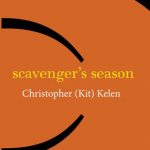
2014. Scavengers’ Season. Sydney: Puncher and Wattmann. ISBN: 9781922186591
https://puncherandwattmann.
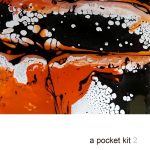
2011, 2015. A Pocket Kit. Markwell, NSW: Flying Island Books. ISBN: 978-99965-4227-5
https://flyingislands.org/

2010. To the Single Man’s Hut [Volume of poems and pictures and exhibition of paintings at Fantasia Galleries, Tap Seac, Macao]. Macao: ASM. ISBN: 979-99-937-3205-0
2010. In Conversation with the River [Volume of poems]. Chicago: Virtual Artists’ Collective. ISBN: 978-09819-8985-3

2010. China Years – Selected and New Poems. Macao: ASM. ISBN: 978-99965-42-14-5
2009. God Preserve Me from Those Who Want What’s Best for Me—Homage to the Romanian Poets. Newcastle: Picaro Press ISBN:978- 19-209-5780-3.
2008. After Meng Jiao—Responses to the Tang Poet. Chicago: VAC Publishing. ISBN: 978-09-798-8252-4
2008. As From the Living page: One Hundred Poems for Yao Feng [Trilingual volume of poetry – in English, with Chinese and Portuguese translation]. Macao: ASM. ISBN: 978-99-937-9722-7
Kelen, K and A. Vong. (2007). Spring Wind Brings the Fireworks—Translations, Variations and Responses to the Poetry of Xin Qiji. Chicago: VAC Publishing. ISBN:978-0977-297-49-8
2007. Dredging the Delta [volume of Macao poems and sketches]. UK: Cinnamon Press. ISBN: 978-19056-1420-2
2006. Eight Days in Lhasa. [Volume of Poetry]. Chicago: VAC Publishing. ISBN: 978-0977-297-43-6
2003. New Territories, Hong Kong: Loudest Place on Earth. [Volume of poems and photographs]. Assisted by the Hong Kong Arts Development Council.
2000. Republics. [Poetry Collection]. Wollongong: Five Islands Press, University of Wollongong. ISBN: 978-0864-18597-6
1998. Mobius. [Poetry Collection]. Nepean: University of Western Sydney. ISBN: 978-09-587-2934-5
1997. Green Lizard Manifesto. [Poetry Collection]. Sydney: Cerberus Press. ISBN:978-09-587-2931-4
1992. The Naming of the Harbour and the Trees. [Poetry Collection] Sydney: Hale and Iremonger. ISBN: 978-08-680-6466-6
Download a sample of Kit Kelen’s poetry here in the Pocket Kit 2

2007. The Boy Who Went Under the Border and Other Stories. Macao: Macao Closer. ISSN1994-4470
2006. Macao: A Map of the Seasons [Volume of Stories and Poems]. Macao: ASM (Association of Stories in Macao). ISBN: 999-37-864-0-3
2006. A Wager With the Gods [novel]. Macao: ASM (Association of Stories in Macao). ISBN: 999-37-864-1-1
1980. Punks travels. [Novel]. Sydney: Backdoor Press. ISBN: 095944310X
2014. When the Moon is Swimming Naked – collection of Australasian Poetry for Children in English and Chinese (including bilingual poems in response by the translators). Macao: ASM.
2007. The Boy Who Went Under the Border and Other Stories. Macao: Macao Closer. ISSN1994-4470
2005. The Magic Door in the Forest. Macao: Picture Box Books (University of Macau)
Download a sample of Kit Kelen’s writing for children here in The Boy Who Went Under the Border
Kit Kelen has published numerous academic research articles in prestigious, highly ranked peer-reviewed journals. These have been in areas as diverse as poetry and poetics, children’s literature, nations and nationalism, cultural studies, popular song, peace studies, pedagogy and rhetoric.
Published Scholarly Books:
2016. (with A. Pavkovik) Anthems and the Making of Nation States – Identity and Nationalism in the Balkans (London: I.B.Tauris).254pp. ISBN 978-1-78453-126-3
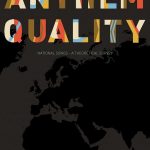
2014. Anthem Quality – National Songs: A Theoretical Survey (Bristol/Chicago: Intellect/University of Chicago Press). 204pp. ISBN 978-1-84150-737-8
2009. Poetry, Consciousness and Community. Vol. 23 in the series Consciousness, Literature and the Arts. Amsterdam: Rodopi Press. 199pp. ISBN: 978-90-420-2724-4
2009. City of Poets – Exploring Macao Poetry Today. Macao: ASM. 267pp. ISBN: 979-99937-32-00-5 (Culmination of work on Macao poetry listed in journal articles below).
Essay Collections

2017. with B. Sundmark. Child Autonomy and Child Governance in Children’s Literature: Where Children Rule. New York: Routledge. 240pp. ISBN: 978-1-138-93164-0

2012. with B. Sundmark. The Nation in Children’s Literature: Nations of Childhood. New York: Routledge. 282pp. ISBN: 978-04-156-2479-4
Volumes of Pedagogic Work
Kelen, C. (2012). Notes for the Translators – from 142 New Zealand and Australian poets. Macao: ASM. 447pp. ISBN:978-99-965-42-48-0
Kelen, C. (2011). Throwing Words Together – 101 Poetry Making Exercises. Macao: ASM. 245pp.ISBN: 978-99-965-42-28-2
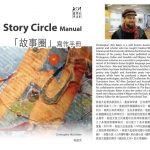
Kelen, C. (2006). Story Circle Manual. (Third Bilingual English-Chinese edition [2012]). 317pp. Macao: ASM. ISBN: 978-99965-42-47-3
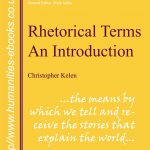
Kelen, C. (2007). An Introduction to Rhetorical Terms. Humanities E-Books (UK). ISBN: 978-1-84760-024-0
What the Critics say:
(Collections of poetry received the following comments in reviews and articles)
This collection marks another level of attentiveness in Kelen’s work. His poems have always delighted with their wordplay, cryptic lyricism and wry wisdoms. Now he moves closer still to the natural world that so absorbs him, close enough to smell its breath, to comprehend its agency.
– Judy Johnson
In this new collection he has become a bold namer of mountains who wears the rain like a hat because he knows that everything that lives has once upon a time been water.
– Peter Kirkpatrick
“In Kit’s poems, we are treated to a sensibility tuned to the wonders of the world. He celebrates so many ‘small things’ in the landscape – wings and grasses, fences and creeks – and even the way a human might need to ‘puzzle a way in my limbs / as roos do’ in order to follow, or pause, on a track … There is a sense of not only the words but the whole human being behind the words being immersed within beautifully lived-in moments… There are poetic echoes here of Gerard Many Hopkins and Les Murray, the rhetoric of Dylan Thomas and the almost under-silence strangeness of e.e. cummings … Sometimes the result is a multi-layered tour de force like ‘for the bears, a leg-up’ or ‘The Shed’, where page after page carries on in a mesmerising engagement with humour and lyricism, rhetoric and laconic throwaways. Sometimes, the poems are small snapshots, often homages to something in nature – a frog, for instance, brings the lines
no one’s as loud as you
no one’s as greenOne of my favourite poems, ‘Time with the Sky’, contains this line:
oh how I love the way words make off with day itself
This is what happens in Scavenger’s Season, over and over again … Words are Kit’s work and his play, and he plays and works with them with an uncanny blend of skill, intuition and serendipity.”
– Jean Kent, Rochford Street Review
“The tone is set early on with the long poem Shed, (which won the Newcastle Poetry Prize local award in 2013). The shed is the ultimate rural assemblage — made up of all sorts of scraps, it is a place to work and ponder, and the bush is all around, and in and out of it all the time. There is almost no concept that can’t be worked into a shed metaphor, and Kelen gets to most of them:
Why bother with the grid? / A blowfly drone’s annoying / but one day it will power the place. The thing just needs / some nutting out. So leave it on the bench. / The peasant / is the king here. Where monarchs tinker with old crowns / no need for revolution.
Later in the book, with in my tin kingdom the shed seems to have diffused out into the landscape: “and a stretch / spring is such / with gums of their own volition / my kingdom / ‘tis of tin I sing”. In between these galvanised ruminations, Kelen’s experience of the land, the wildlife, of himself, is conveyed in short, rhythmic, rhetorical phrases, bucolic and ode-like, and Horace makes an appearance, in case we were in any doubt as to what is going on.
Kelen’s engagement with the country is a wry one: he is amused by the fact that within his boundaries nothing much happens of any utility, and he engages with the land in an almost Berkeleyan fashion: it seems to exist only if he writes about it. He is self-consciously a bricoleur, making his life and art out of what he finds lying around, and makes the Australian bush appear far more charming than it has any right to.”
–Peter Kenneally, The Weekend Australian
“Kelen is not beyond using apostrophe (the addressing of absent or inanimate beings) and occasional inversions of word order. A typical line (from Clocks Run out of Steam) is: “sun I’ve praised and sunshine too”. It’s a straight trochaic tetrameter and could have been written any time in the past four centuries. There’s also a playfulness in this line, which is prevalent throughout. Kelen’s narrator (surely the poet himself?) is often a little apologetic and self-deprecatory. He seems to acknowledge that the land needs closer attention than he is able to give it.
More than a hint of this is caught in the poet’s implied response to the advice he gets from locals in his “set-piece” poem, Blokes: “Arriving in their utes and vans / they’re always round here, day and / night, courting our Penelope. / Know what’s next, what’s what, when / why. Blokes know what to do and / what you need and even if you / can’t decide. Blokes’ll sort your / trouble out.” The poem runs on in this style for another four pages and is a bemused, if comprehensive, account of a certain kind of Australian masculinity. Like Geoffrey Lehmann’s Parenthood, it seems destined for the anthologies…While Scavenger’s Season may not be much use as a manual for block-holders (hardly its intention), it is certainly likely to provide smiles of recognition and a re-affirmation of their chosen lifestyle.”
– Geoff Page, The Sydney Morning Herald
“It’s a little like reading in a language one learned long ago and has a rusty hold of – there’s a deep pleasure in feeling meaning emerge… So there you have it: a book that invites you to join the poet in an immersive experience of the Australian bush, flavoured by a deep familiarity with Chinese culture and language. I received a complimentary copy of this book from the publishers. I’ve read and re-read, used and abused it so much I may have to buy a fresh one with my own money!”
– Jonathan Shaw
“Kelen goes some way to warning the reader that getting things down is a priority, as in the title of the poem ‘all lines a mantra till they’re down’, which begins: ‘wild garden I dream / and the journal of paws // cows beyond cud rumble’. The pace is freeing and stays close to the moment of making, following the contour of the land/language. Similarly, this from ‘I hear the beating louder and louder’:
stone in my pocket
travels for meaning
of elsewhere it is and so I feel
however torn
one track time makesIn keeping with a mostly scattered approach to meaning, Kelen retains two manifestoes until late in the book. These are revealed in ‘minor manifesto’ which seems to give precedent to the accidental, and the direction of natural surroundings: ‘see how the storm’s hung our antenna’; and also the quiet underside of things – ‘let there be also / lacking effects / passing unnoticed // let lack itself / set free’. Here is the last poem, ‘manifesto’, which reads (in its entirety):
from my door
everywhere leads me
every way home
nowhere but the wayThis is delivered in clear unpunctuated language, a quick sweep through the lines and hints at meaning. In Scavenger’s season there’s the feel of remembrance, of talking to oneself in the dead of night, working at a type of language that might speak of universality; a formal language with which to address notes to the self.”
– Luke Beesley, Cordite
“Kelen has always had an element of playfulness in his work, thoroughly Australian. But his immersion in Chinese culture has seen a hybridisation of great vitality. The book leaps from a range of springboards – Li He, Xue Tao, Su Xiaoxiao etc and is infused with a rambunctious , occasionally drunken Taoist glee…Combine this writing with his ink sketches throughout and you have a memorable publication.”
– Les Wicks (Famous Reporter)
“The language here is almost Blakean: watching, noting, pared,
judging, but unlike Blake never judgemental. Beneath the slim cut lines there is a plangent, elegaic appeal to forces which might be moral, but which are in no hurry… There is an astuteness of judgement infusing the verse… Reading Kelen’s seductive, witty verse, one knows that humans bring about change, but that all effects will slide seaward, subject to ‘ambling centuries’ and the processes and layerings of air and sea and time…”
– Lyn McCredden, in Westerly
“an intriguingly rich collection… I, for one, look forward eagerly to where he goes from here… He is already atop an impressive coastal range and we can hear his coo-ee splendidly.”
– Tom Shapcott in Text
“Kelen has the uncanny ability to disappear into a poem, lose his self, and achieve a directness of language and vision that seduces the willing reader into doing the same”abc australia
– Jeff Hodges in The New England Review
“Perhaps it’s only now at the beginning of the third century of white colonisation that an authentic Australian voice can be heard. Kelen’s is one such voice – rich with contradiction, diversity and detail, giving a complex and troubling view of Australia”
– John Tranter
“reminiscent of some parts of Ashbery – what handling of flashy language and helter-skelter rhythmic drives. These pages dazzle with their own delight; one transferred to the reader. Yes, they’re fun – a bitingly satyrical fun – and there’s nothing wrong with that”
– Jeff Doyle, Canberra Times
“a rich mix that grows, with successive readings, into something rewarding….. strong and eloquent ”
– Martin Duwell, The Australian
“infused with an awareness of global concerns… imaginative, creative and fun”
– Alison Bartlett, Australian Book Review
“One of Australia’s most exciting and accomplished younger poets”
– Philip Mead, University of Melbourne
“powerful, distinctive and in tune”
‘The Naming of the Harbour and the Trees is a powerful book that deserves a wide readership. Kelen has a distinctive voice and a highly tuned ear. He has a surefootedness in a world made
slippery”
– Keith Russell, Newcastle Herald
“something of a virtuoso performance…..
an Australian poet of considerable stature,
whose best work, I suspect, is yet to come”
– John Knight, Social Alternatives
“typically innovative and intellectually sharp”
– The Oxford Companion to Australian Literature
